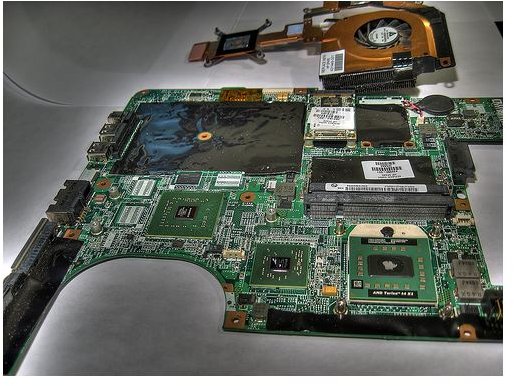Can a Faster CPU be Installed in a Laptop Computer?
Laptop CPU Upgrades
One of the component upgrades that can significantly improve a laptop’s performance is a CPU upgrade. While it is well known that a desktop computer’s CPU can be easily upgraded, individuals often wonder if the same can be done to a laptop’s CPU simply because they assume that everything is tightly integrated and cannot be easily upgraded. In this article we answer the question: **“**Can a faster CPU be installed in a laptop computer.”
Generally speaking, it is possible for many laptops to take a faster CPU, but that really depends on what the motherboard and other components are compatible with. For any given CPU to work properly, the other components it must be compatible with are the BIOS and the motherboard.
That said, there are some laptops that don’t support a CPU upgrade or for which manufacturers do not readily provide compatibility and upgrade information. For these laptops, upgrading the CPU is a lost cause, which leave owners of these laptops with only the option of doing a memory or hard drive upgrade to improve the machine’s speed.
In nearly all laptop CPU installations, the CPU plugs directly into a socket on the motherboard. While most boards can support processors of various speeds and performance ratings, there are specifications (i.e., bus rates, socket types and voltage levels) with which a processor must be compatible in order for it to work well.
To verify a CPU’s compatibility with other laptop components, check the laptop manufacturer’s website or that of the motherboard manufacturer – they will usually have a list of all the processors that are compatible with the board. From there, you should be able to determine what is the fastest processor that the laptop can take as well as whether or not the board is already max-ed out. In some cases the laptop is already running the fastest processor that it can handle.
Sometimes the system board can support a faster processor but other components, such as the BIOS, may need to be upgraded as well. If a BIOS update is necessary, you should do the update with the new processor already installed. This will ensure that the system can correctly identify the processor and set the required parameters so that everything works well together.
It is important to note that while some boards can accommodate a CPU upgrade, sometime the BIOS itself cannot be updated to support a faster processor. While replacing the CPU is possible, doing so is an option that only advanced tech personnel should attempt, but most don’t bother because the BIOS is often soldered to the motherboard.
Conclusion
So, can a faster CPU be installed in a laptop computer? In many cases the answer is yes, but you must first ensure that the laptop can support the upgrade by checking the respective support pages on the manufacturer’s website.
References:
“How to Upgrade CPU of an Acer Aspire 4315 - Step by Step,” https://www.youtube.com/watch?v=OMLr6pthFKs
“Processor upgrade information,” https://www.intel.com/support/processors/sb/CS-023105.htm?wapkw=%28cpu+motherboard+compatibility%29
Image Credits:
“CPU Upgrade - Can a faster CPU be installed in a laptop computer,” https://www.flickr.com/photos/razor512/3345566198/sizes/m/in/photostream/
